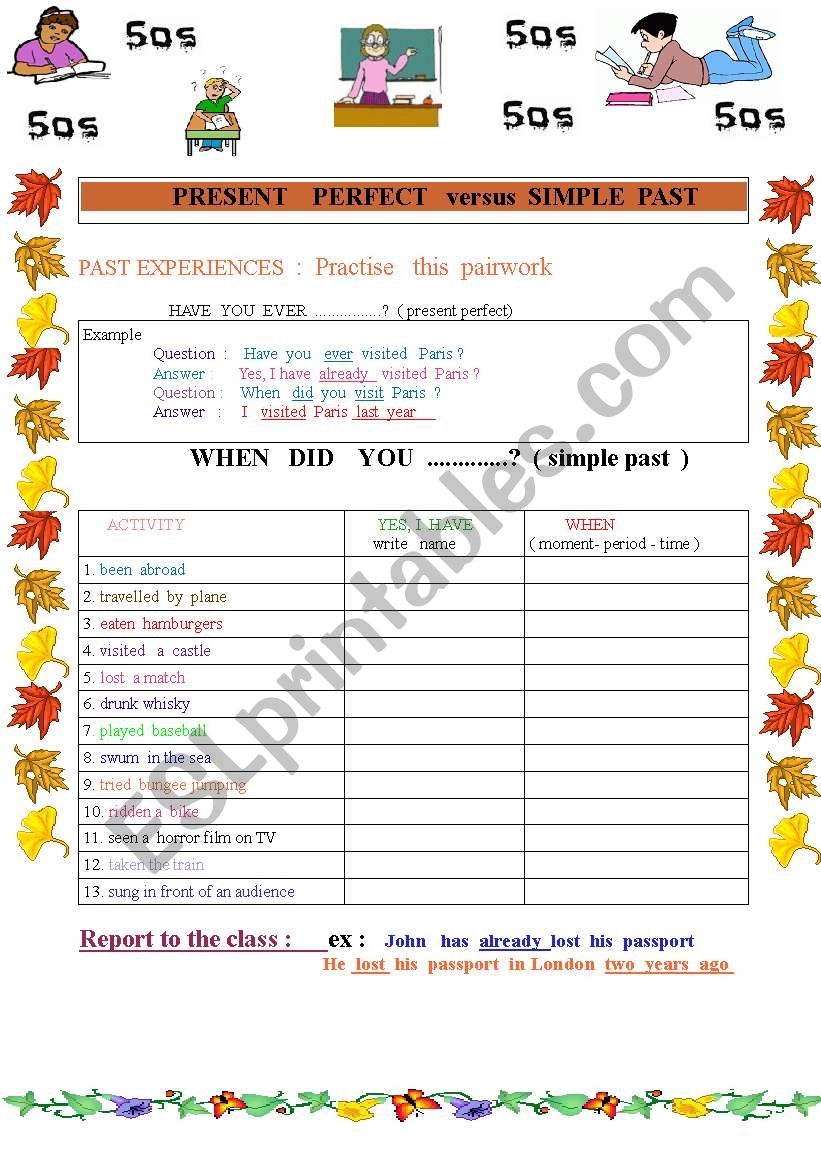The English language has many tenses that can sometimes be confusing, especially for non-native speakers. Two of the most commonly used tenses are the present perfect and simple past. Understanding the differences between these two tenses is essential for clear and accurate communication.
Both the present perfect and simple past are used to talk about past events, but they are used in different situations. Knowing when to use each tense can help you convey your ideas more effectively and accurately.
Present Perfect versus Simple Past
The present perfect tense is used to describe actions that happened at an unspecified time in the past or that have a connection to the present. For example, “I have visited Paris” indicates that the action of visiting Paris occurred at some point in the past, but the exact time is not specified. The simple past, on the other hand, is used to talk about actions that were completed at a specific point in the past. For example, “I visited Paris last year” specifies that the action took place in the past year.
Another key difference between the two tenses is the use of specific time expressions. The present perfect is often used with time expressions like “ever,” “never,” “already,” and “yet” to indicate that the action occurred at some point in the past, but the exact time is not important. In contrast, the simple past is used with specific time expressions like “yesterday,” “last week,” and “two months ago” to indicate when the action took place.
It is important to note that the present perfect tense is also used to talk about experiences or actions that have relevance to the present moment. For example, “I have studied English for five years” implies that the action of studying English has a connection to the present, whereas “I studied English in high school” refers to a past action with no connection to the present.
In conclusion, understanding when to use the present perfect versus simple past tense is crucial for effective communication in English. By mastering the differences between these two tenses and practicing their usage, you can improve your language skills and convey your ideas more accurately.
